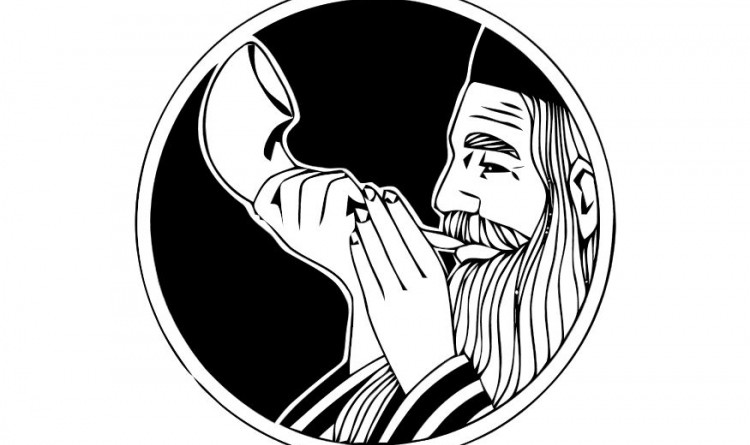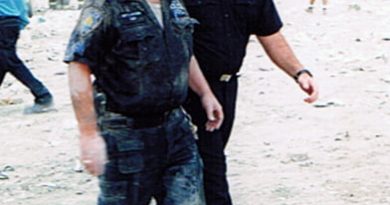Rosh Chodesh Elul — Spiritual Accounting
Today is Rosh Chodesh Elul, the first day of the Hebrew month of Elul. Which means Rosh Hashanah, the Jewish New Year and Day of Judgment, is exactly one month away.
We start blowing the shofar at morning services — our “spiritual wake-up call,” urging us to wake up, pay attention, reflect.
Rabbi Alan Lew, z”l, in his wonderful book “This is Real and You Are Completely Unprepared,” which I highly recommend, gives a wonderful description of Elul which I will share:
“Suddenly you are awakened by a strange noise, a noise that fills the full field of your consciousness and then splits into several jagged strands, shattering that field, shaking you awake. The ram’s horn, the shofar, the same instrument that will sound one hundred times on Rosh Hashanah, the same sound that filled the world when the Torah was spoken into being on Mount Sinai, is being blown to call you to wakefulness. You awake to confusion. Where are you? Who are you?
“Then you remember. In exactly one month, one revolution of the moon, you will stand before God. What will God see on that day? What will you see? This encounter can carry you significantly closer to the truth of your life. Standing in the light of God, you can see a great deal more than you ordinarily might, but only to the degree that you are already awake, only in proportion to the time and energy you have devoted to preparing for this encounter.
“So it is that Mateh Moshe proclaimed, ‘every person must prepare himself for thirty days beforehand with repentance and prayer and charity for the day when he will appear in judgment before God on Rosh Hashanah. Therefore let every person scrutinize their actions with a view to mending them. Let them exclude themselves for one hour every day and examine themselves.’” The rabbis tell us that during this time of year we should spend less time in study and more time in introspection and self-evaluation.”
There is a traditional model for teshuvah, repentance, that many people are familiar with. It’s the model described by Rambam (Maimonides). You reflect on your actions, think about any wrongs you might have done, fix the damage, ask the injured party to forgive you, etc.
One year I had the privilege of studying with Rabbi Mickey Rosen, z”l, during the month of Elul at Yakar. Most of the time was spent listening to Rav Mickey argue with Rambam: arguing that Rambam does not go far enough.
I agree with Rav Mickey’s critique: it’s not enough to just fix any damage we might have done in the last year. We need to work on our midot, our personal characteristics, our “personality traits” if you will. We need to think about the person we want to be — the person we could be — and work diligently to move in that direction. Could you be more giving? More loving? More considerate? More open minded? More patient? More intellectually honest?
This is a great time of year to start a spiritual journal, and especially reflect on your interactions with other people — friends, colleagues, family, strangers. It’s very easy to intellectually accept the idea that we are all created in God’s image — but I don’t know about you, but I sure sometimes have difficulty seeing the Godly in people who piss me off.
I was in Dharamsala, India a few weeks ago, the home of Tibetan Buddhism “in exile.” One of the teachings of the Dalai Lama that I very much appreciated was the idea that his efforts at achieving enlightenment were solely in the service of other people. Why become enlightened? Not just to satisfy some intellectual curiosity. Rather the goal of enlightenment, the goal of spiritual work, should be to help you be better equipped to help other people, to help make the world a better place.
If you want to have a meaningful High Holiday experience, the time to start is right now.
May the Holy One, Blessed be He, help us all grow, learn, and improve the world, one person, one interaction at a time.




Pingback: Elul 5780 - Focus on the Good - The Neshamah Center